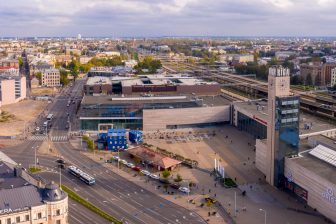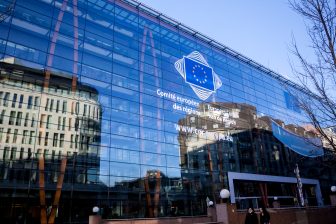Rail ‘cuts even more road miles’ as freight hubs increase
The ability of rail freight to cut congestion on UK roads is far greater than previously thought, according to new figures by influential pressure group, the Campaign for Better Transport (CBT). It says the Daventry Intermodal Freight Terminal in the Midlands has removed some 64 million lorry miles from the roads in the past year alone – almost three times more than originally projected.
Philippa Edmunds, Freight-on-Rail Manager at the Campaign for Better Transport, said the figures confirmed what the CBT had long argued; that the best way to reduce road congestion, pollution and accidents is ‘integrated rail and road planning’, rather than adding ‘ever more lanes’ to the nation’s motorways.
Economic generators
“Strategic rail freight interchanges like Daventry are important economic generators and show the way the private sector is investing in and supporting rail freight,” said Ms Edmunds. “What we need now is for the Government to follow the private sector’s lead and support rail freight by upgrading the existing network and setting affordable charges to enable rail to remove even more lorries from our congested roads.”
Rail freight interchanges like the one at Daventry, which is operated by Malcolm Rail, enable rail to compete with HGVs by reducing transhipment costs. It currently employs more than 5,000 people, and this is forecast to rise to up to 9,000 when its new terminal opens. New rail freight interchanges are coming on stream elsewhere in the UK, creating a larger network of rail freight hubs to provide a catalyst for significant new business between the UK, mainland Europe and beyond, a key development in the context of the ongoing Brexit process.
Multimodal
Four Ashes Strategic Rail Freight Interchange near Wolverhampton, is currently going through the planning system, while Doncaster’s iPort multimodal park, a 337-acre logistics centre, has a strategic rail freight interchange opening later this year.
The figures support research by consultants MTRU for Campaign for Better Transport which found that upgrading existing rail lines running parallel to strategic motorway routes would help reduce road congestion and improve productivity.
‘Help, not hinder transport’
The Freight Transport Association (FTA) meanwhile, one of the UK’s largest trade associations which represents the transport interests of companies moving goods by rail and other modes, has published its manifesto for the next Government, saying it needs to ‘help, not hinder’ transport. Among its wishes are free access to the EU market post-Brexit for the UK freight industry, government assistance in forging new trade deals with leading and emerging economic powers, increased investment in rail freight, and reduced infrastructure costs associated with rail, to enable shippers to diversify their transport options.
Christopher Snelling, Head of National Policy at the FTA, said: “The logistics sector underpins every aspect of modern life and it is incumbent on the next government to ensure that it remains a key consideration for the next government’s policy decisions, both domestically and internationally.
“The industry deserves the full support of the government as it works to ensure the continued success of UK PLC, and we expect whichever party is successful in next month’s General Election to place logistics at the heart of its economic plans,” he added.





